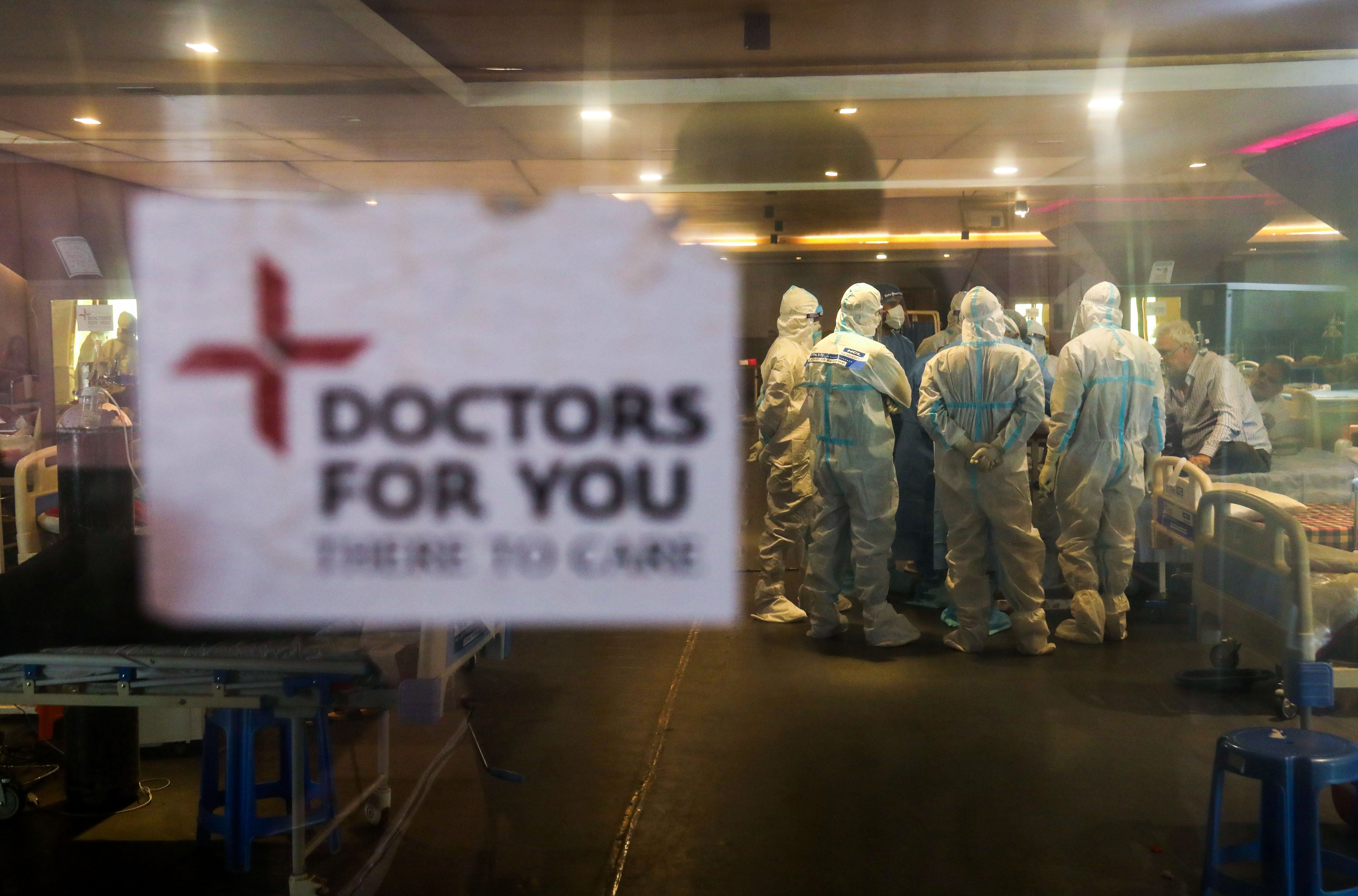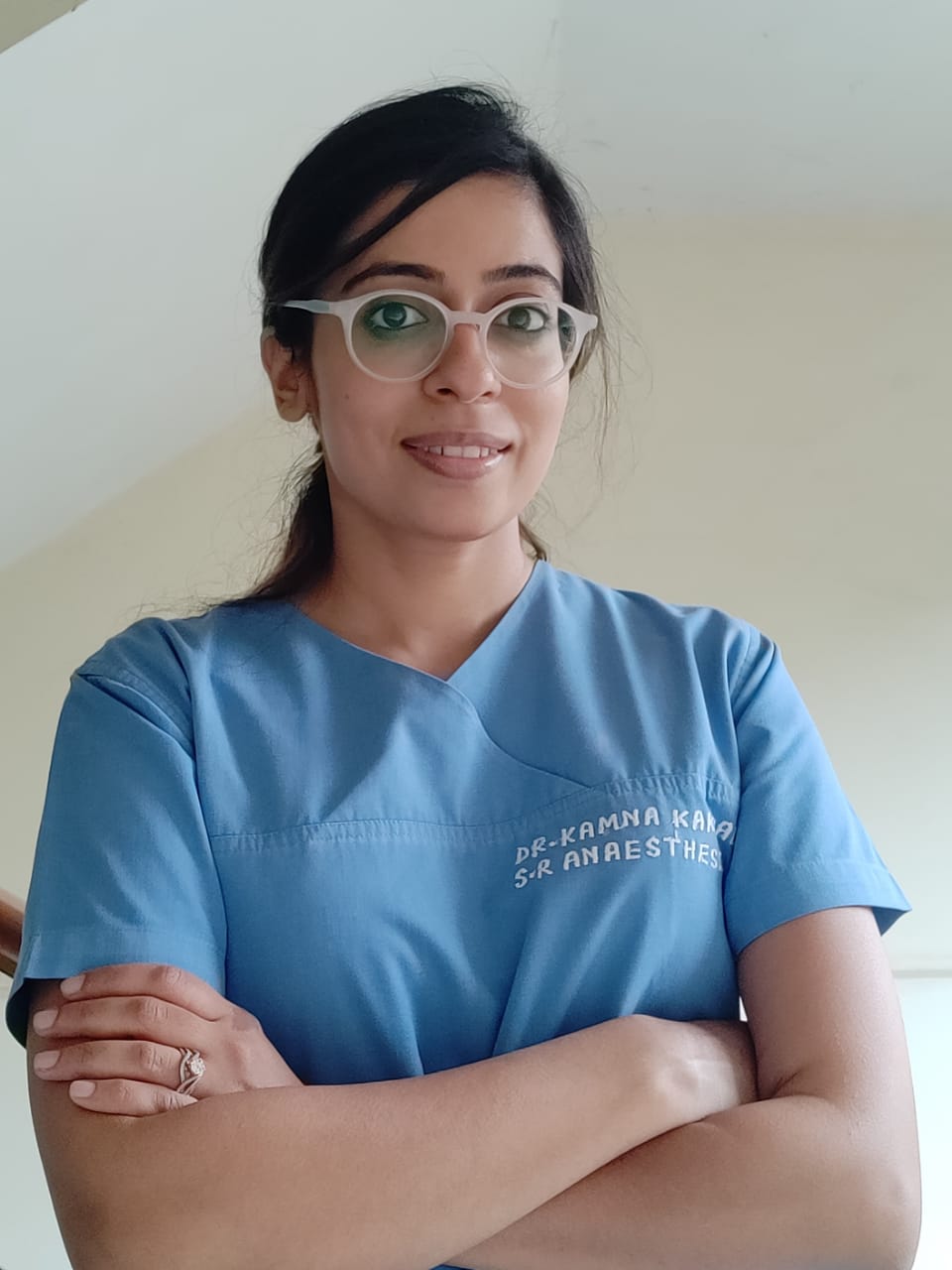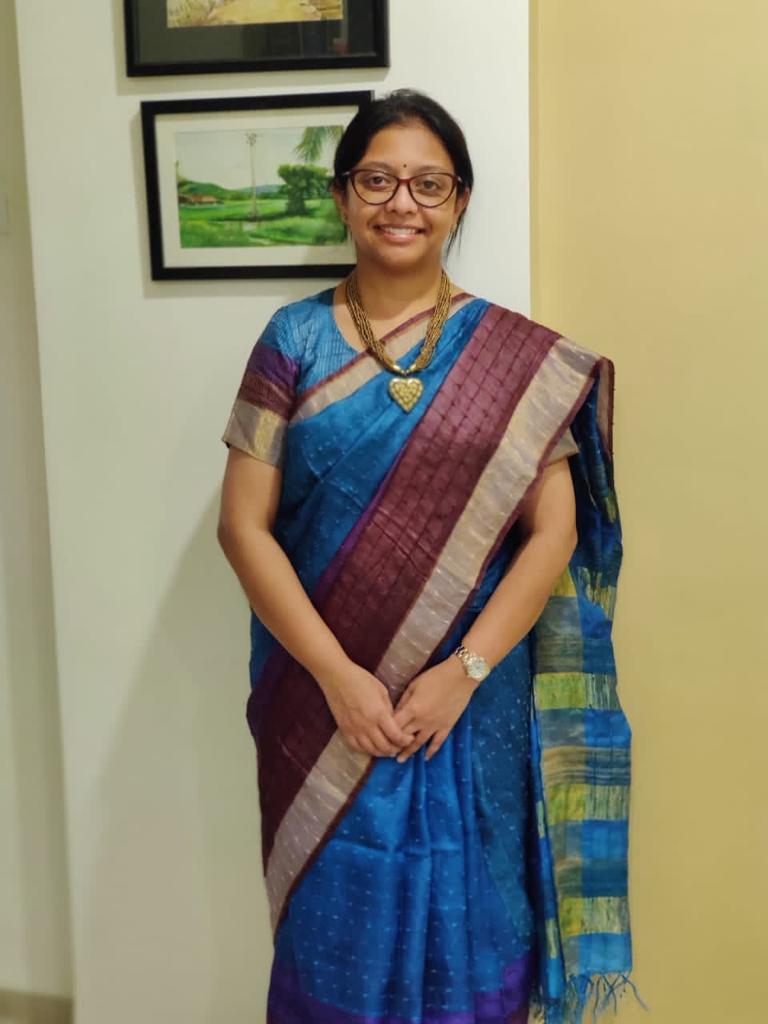‘No one can imagine our trauma’: How India’s doctors silently suffered during deadly second wave
In a country the WHO has labelled the ‘most depressed’ in the world, doctors talk to Shweta Sharma about making exhausting life-and-death decisions during India’s second Covid wave


In May, as India faced the full brunt of the devastating second wave of the coronavirus pandemic, and hospitals ran out of beds and medical oxygen, a 35-year-old doctor at one of Delhi’s top private hospitals died by suicide.
Dr Vivek Rai, who was treating Covid patients in the Intensive Care Unit (ICU) at Max Hospital in Saket, left behind a pregnant wife and a note that said he “wished happiness for everyone”.
Hidden in the physical and economic toll of Covid-19 are stories of a mental health pandemic, especially among frontline healthcare workers fighting to cope amid an unprecedented crisis.
Much of the trauma of physicians stems from what they call “moral injury” – the hurt they carry from having been unable to save lives as infrastructure crumbled around them, rendering them helpless.
Dr Kamna Kakkar, 29, says she has been suffering from a recurring nightmare as a result of her work at a hospital in Rohtak, Haryana, a state adjoining Delhi. In her dream, Dr Kakkar recalls, the steady beep of machinery builds to a cacophony as a patient in an ICU bed gasps for air. It all fades out as the doctor watches her patient die, fixed to her chair, unable to move. Each night, the cycle repeats itself.
“At times I would have palpitations, anxiousness, and I was unable to sleep. When I used to sleep it was just for four or five hours. It continued for 15 to 20 days before I consulted my psychotherapist,” Dr Kakkar tells The Independent.
Healthcare workers describe their Covid experience as like going to war without being equipped with weapons. Their efforts to save lives were impeded by a shortage of oxygen, medicines, workforce and hospital beds.
As the second wave took hold in April and May, India made headlines around the world with multiple grim tallies and landmarks, at its peak recording more than 415,000 infections in a single day. But the less visible, psychological toll has been of the same gravity, say experts.
Exhausted healthcare workers, exposed daily to the risk of infection, in addition often dealt with the anger and grief of those who had lost loved ones.

At one point, patients were dropping dead as they reached the hospital. The morgue was brimming with bodies and the stench of the dead filled the wards, says Dr Kakkar, who works at the Postgraduate Institute of Medical Sciences, Rohtak.
“One day there was this strong stench filling up the alleyway and wards. I asked the ward boy to check if a cat or rat had died in the air-conditioning vent,” she says.
“It was then he told me that there are lots of bodies piling up in the alleyway from last night, and every other patient brought to the hospital was dead that night.”
The doctor said she has “never seen anything like this before in her life”, and that the trauma was tremendous before she reached out to a psychotherapist for help. “For 30 days I barely slept for four to five hours each night during the peak of [the] pandemic, as I was consulting patients on call from home or just trying to arrange for beds and oxygen for family and friends,” she says.
Dr Urvi Shukla performs an extraordinary moral duty for her end-of-life patients.
To make the passing quiet and peaceful, she darkens the ICU by shutting off all the lights, and switches off all the alarms so that they won’t buzz when the heart rate or blood pressure of a patient starts to drop.
As the doctor in charge of the Covid ICU at Symbiosis University Hospital in Pune, Maharashtra, Dr Shukla says she makes sure there is always someone to hold their hand in their last moments.
“In the ICU we have seen quite a few patients get well and go home, but those who did not make it will stay in our memories forever,” she says.
The 49-year-old doctor has herself had two debriefing sessions at her hospital, to “lighten the burden and unwind”, because what she and her colleagues endure in ICU daily is not something they can share with family and friends.

“We see the panic on the family’s faces, uncertainty, hope and despair, but we share the same fear and nervousness as them. We project confidence, as people are looking to us for solace, that we will be able to pull them [through]. We cannot play that role endlessly. In the back of our mind, we know so much and it takes a toll,” Dr Shukla says.
Doctors, especially those new to the profession, also fear developing an emotional bond with their patients. “Because to come the next day and find the bed empty could be painful,” she says.
“We get to know about their social situation – sometimes a person is a sole bread earner, parent to young children. There is that pressure we face daily, trying for those who we know will not get better,” she adds.
With the shortage of equipment, doctors have also repeatedly had to make life-and-death decisions, including which patient would get access to a ventilator or an oxygen bed.
Dr SCL Gupta, medical director of Batra Hospital in Delhi, where 12 patients choked to death after the hospital’s oxygen tank dried up, says doctors shouldn’t have the responsibility of taking “god-like decisions”, but that’s the situation they found themselves in.
“I will forever regret that day of my life because those patients could have been saved. But the external fault lines prevented you from performing your duties. That is a sort of harassment,” he tells The Independent.
“That’s the moral injury that occurs, as you are not only responsible to the families of those patients who died because of the unavailability of something, but you are also answerable to yourself at the end of the day,” he says.
The 68-year-old doctor says his family was worried that he might take the “extreme step” of self-harm as he faced the risk of legal repercussions, along with threats from anguished families.
More than a dozen doctors have been assaulted in separate incidents, mostly during the second wave of the pandemic. Dr Gupta had to lock himself in a room for hours after 12 of his patients died and their families started crowding in. “One cannot imagine the trauma we went through,” he says.
Delhi-based psychiatrist Rajkumar Srinivas says there has definitely been an increase in the number of doctors reaching out for help during the second wave.
“The reflexes become blunted when you are overwhelmed, and the reaction time might get prolonged in times of emergency, which could be fatal for the patient. Therefore, it is important for medics to realise the limitations of being human and not feel shy in asking for help,” he says.
Tanya Percy Vasunia, a mental health professional from Mumbai who has worked on the Maharashtra government’s mental health helpline, says most doctors she spoke to were suffering from post-traumatic stress disorder (PTSD), having witnessed extraordinarily high volumes of death and suffering.
Ms Vasunia says doctors approached her with anxiety, grief, insomnia, and some with low mood, as well as depression.
“Their resilience continues to surprise,” she says. “This is the cohort that has undergone rigorous training over the years, and they enter the profession after already experiencing tremendous pressure in government hospitals – so for them to feel burnt out, exhausted, anxious is really something.”
More than 1,400 doctors have succumbed to Covid in India since the beginning of the pandemic, with at least 719 medical professionals lost in the second wave since April despite vaccinations being available to them – a figure considered conservative by doctors’ associations.
For readers in India who have been affected by this story, the National Institute of Mental Health and Neurosciences (NIMHANS) can be reached for psychological support on 08046110007
Join our commenting forum
Join thought-provoking conversations, follow other Independent readers and see their replies
81Comments